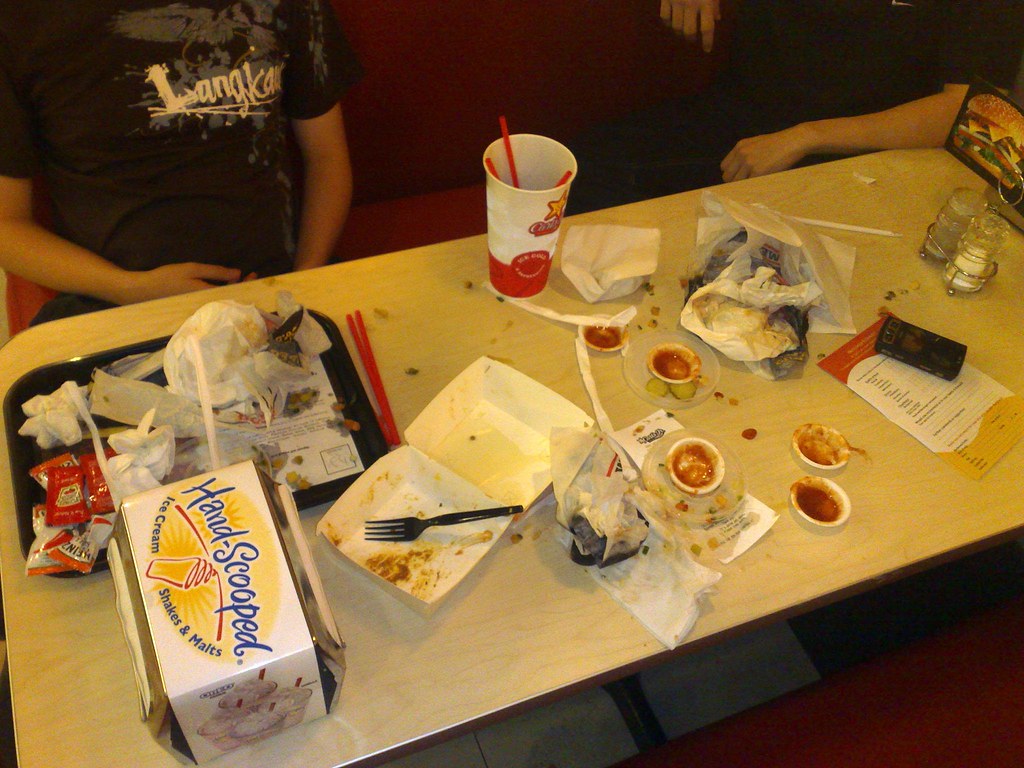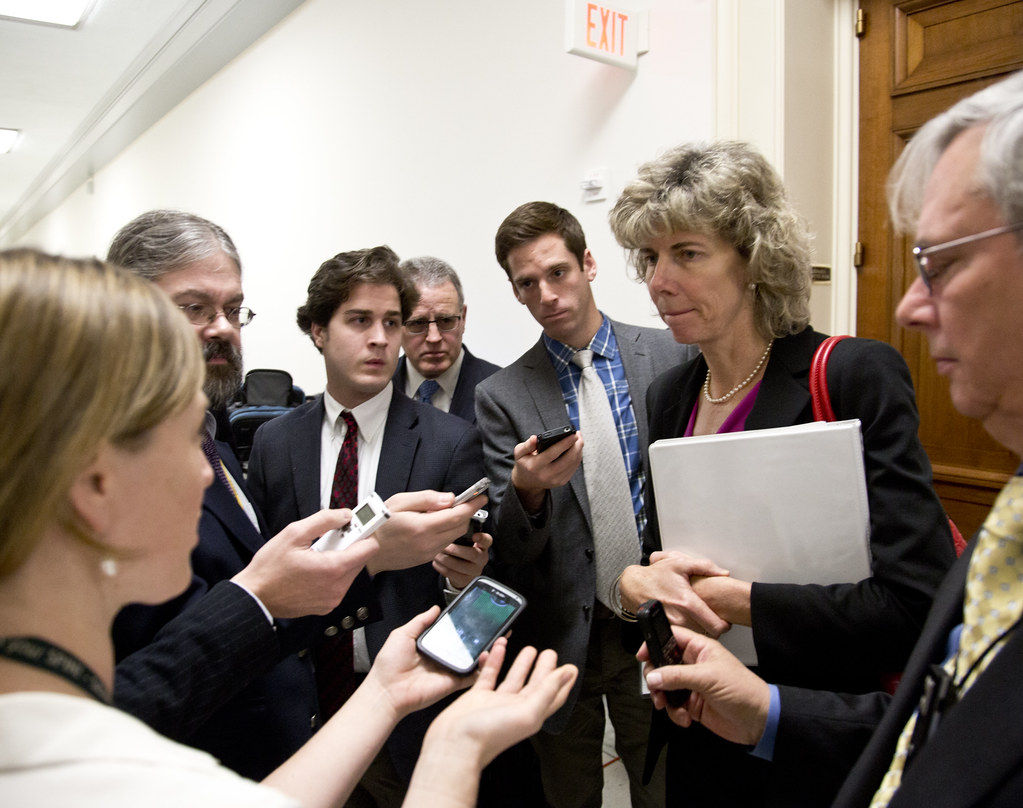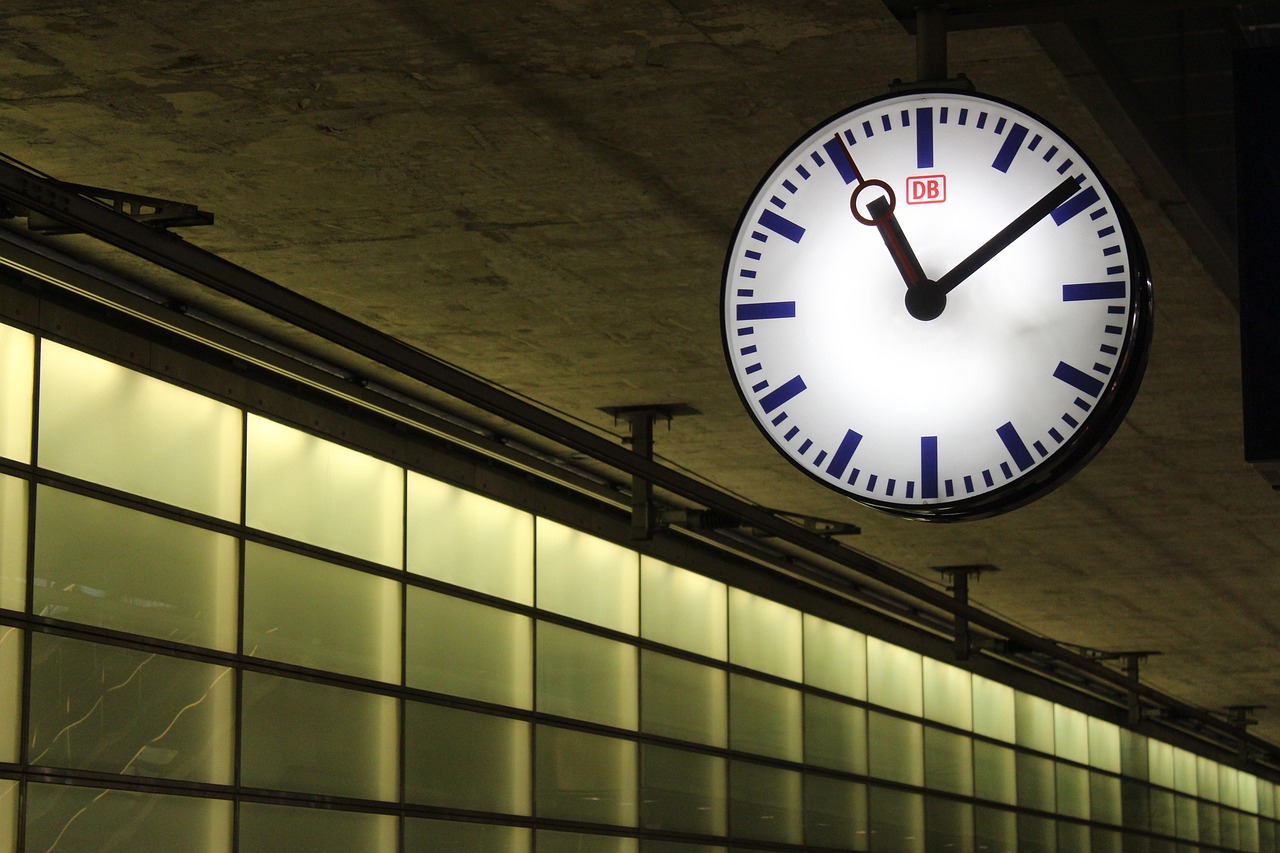
Working in a professional environment demands not just skill and dedication, but also a keen awareness of how our actions impact those around us. While we navigate deadlines and project demands, it’s easy to overlook the subtle habits that can unintentionally create friction, erode morale, and even undermine productivity within a team. These seemingly small behaviors, accumulated over the workday, can transform an otherwise dynamic workspace into a source of constant frustration for coworkers and superiors alike.
The reality is, offices are melting pots of diverse personalities and working styles, making a perfectly harmonious environment an aspirational goal rather than a constant state. Yet, understanding and addressing common workplace annoyances is crucial for fostering a collaborative and respectful atmosphere where everyone can thrive. After all, as one piece of content eloquently puts it, “working is hard enough without workmates’ behaviors making it even harder to get through the day.”
We’ve gathered insights from surveys of full-time workers and extensive lists of common grievances to spotlight the most prevalent office habits that irk colleagues and bosses. From virtual meeting faux pas to personal hygiene oversights, our goal is to help you identify if you might be unwittingly contributing to workplace discord and, more importantly, equip you with the knowledge to refine your professional conduct. Let’s dive into some of the most frequently cited irritants and explore actionable steps towards a more considerate and productive shared environment.

1. **Constant Interruptions (and Talking Over Others)**
This is a pervasive issue that can severely disrupt workflow and concentration. Whether it’s “in the middle of a meeting or during an intense project,” frequent interruptions break a person’s “concentration & you lose your rhythm.” The impact is not just momentary; regaining focus after being sidetracked can take significant effort and time, effectively diminishing overall productivity for both parties involved.
In the context of meetings, this habit takes on an even more critical dimension. When colleagues “talk over other people during a meeting,” it stifles open communication and can make others feel unheard or disrespected. This behavior was highlighted in a survey as one of the most bothersome things a coworker can do, directly impeding the collaborative spirit essential for effective decision-making and problem-solving.
Consider the cumulative effect of these interruptions. For someone trying to concentrate on a complex task, even a brief “chit-chat” can be enough to derail their thought process, creating a sense of being “piled up with work to do” while constantly battling distractions. This highlights the importance of being mindful of a coworker’s availability and work status before approaching them, especially during peak work periods or focused tasks.
For individuals seeking to improve, a simple strategy involves observing social cues. If a colleague is deeply engrossed in their screen, has headphones on, or is clearly engaged in a call, it’s a strong indicator that they prefer not to be disturbed. Asking “Is this a good time?” before launching into a conversation can make a world of difference, demonstrating respect for their time and their need for uninterrupted focus.

2. **Excessive Complaining**
A workplace can quickly become a breeding ground for negativity when “colleagues who whine about everything from workload to bosses to the freezing weather” are present. While occasional venting is a normal human response, a constant stream of grievances can be incredibly draining for those around them. The context clearly states that “Negativity is contagious & can affect others’ ability to remain motivated or focused,” making it a direct threat to team morale and collective drive.
This habit extends beyond just bringing down the mood; it creates a perceived burden on others. When a coworker is constantly complaining, it feels “as if you are carrying their burden along with yours,” according to one observation. This emotional labor can be exhausting and distract from one’s own responsibilities, transforming the shared workspace into an emotionally heavy environment rather than one of support and collaboration.
Surveys reinforce this sentiment, identifying “a complainer” as one of the most annoying types of people to work with, both for men and women. This isn’t merely about personal preference; it’s about the tangible impact on the professional atmosphere. A relentless complainer can inadvertently discourage innovation, dampen enthusiasm for new projects, and foster a general sense of apathy within the team.
Addressing this habit means recognizing the difference between constructive feedback and mere griping. For those who find themselves frequently complaining, seeking solutions or privately discussing concerns with a trusted manager or HR can be far more productive than broadcasting frustrations to the entire team. Cultivating a problem-solving mindset, rather than a purely complaint-driven one, can significantly improve one’s professional perception and the overall team dynamic.
Read more about: A Comprehensive Review of Facebook: Tracing Its Evolution, Features, Controversies, and Enduring Global Impact

3. **Over-sharing Personal Drama / Disrespecting Boundaries**
While it’s “wonderful to be able to connect personally with your workmates,” there’s a crucial line that should “NEVER be crossed.” Oversharing personal drama, such as “love life to family conflicts” or even more intimate details like “history of drug abuse, latest bout of piles, recent sexual conquests,” is often “unmanageable & inappropriate on a busy working day.” It can make colleagues uncomfortable and shift the focus from professional tasks to personal issues that are out of place in an office setting.
This habit is closely linked to disrespecting personal boundaries. The “space invaders” who stand “just a little bit too close and touching just a little bit too much to tickling and hugging (in extreme cases)” create an environment of discomfort for many. As the context points out, while “you may be comfortable with touching,” others, particularly “the reluctant touchers among your office,” will find it “uncomfortable, annoying and downright rude!” It’s a clear violation of professional space and a lack of awareness of diverse comfort levels.
The issue of oversharing and boundary invasion extends to verbal interactions as well. Discussing “taboo topics that should ALWAYS be avoided” forces coworkers into awkward positions, potentially making them privy to information they neither want nor need. This can damage professional relationships, making colleagues wary of engaging in casual conversation for fear of inadvertently inviting an inappropriate disclosure.
To mitigate this, individuals should practice discretion and maintain a professional filter. Before sharing personal details, consider if the information is truly relevant to work or if it might make others uneasy. Similarly, respecting physical and conversational boundaries means being observant of body language and personal space, understanding that not everyone welcomes close proximity or intimate disclosures in a professional setting. Establishing clear boundaries, both personally and interpersonally, is key to maintaining a respectful and productive office environment.

4. **Taking Credit for Others’ Work**
Few things are as demoralizing in the workplace as having “stolen thunder.” The act of “colleagues take credit for an idea or task that you did” directly impacts an individual’s sense of self-worth, making them “feel unworthy & brings down your morale at work.” This behavior is not just a minor annoyance; it strikes at the core of professional respect and fairness, undermining the trust and recognition that are fundamental to a healthy work environment.
The stakes become even higher “when they do it in front of the boss because it affects promotions & opportunities.” In a competitive professional landscape, such actions can have tangible negative consequences for the person whose work was appropriated, potentially hindering their career progression and professional growth. This makes the habit particularly insidious, as it directly capitalizes on another’s effort for personal gain, creating deep resentment.
This is consistently identified as a major grievance, even topping the list of “the most annoying coworker behavior” regardless of category in one survey. Its prominence highlights the universal value placed on recognition and accountability in the workplace. When credit is misattributed, it not only disempowers the original contributor but also signals a dysfunctional team dynamic where individual achievements are not properly acknowledged.
For leaders and team members, establishing clear processes for attributing work and celebrating successes can help combat this issue. Individuals should also learn to document their contributions and, when necessary, respectfully advocate for their own work, especially if such a pattern emerges. Fostering a culture of transparency and mutual respect, where contributions are openly acknowledged, is essential to prevent this highly damaging habit from taking root.
Read more about: Unmasking the True Price: 14 Hidden Costs That Turn Car Ownership into a Financial Maze for Every Driver
5. **Perpetual Lateness (Meetings & Work)**
Punctuality is a cornerstone of professional respect, and its absence can create significant ripple effects throughout a team. When a “colleague comes late to meetings or blows deadlines constantly,” this “disrupts everyone else’s schedule.” It forces others to “cover or wait unnecessarily,” which is “disrespectful” of their time and commitments. Whether it’s showing up late to a critical project meeting or consistently missing submission deadlines, the downstream impact on team productivity and morale is considerable.
The annoyance of lateness extends beyond scheduled meetings to daily arrival times. “People who are always on time are bound to be irked by people who are always late – they’ll feel put out and wonder how on earth you’re getting away with it.” This sentiment highlights a fairness issue, as diligent employees who manage their time effectively perceive the latecomers as benefiting from a lack of accountability, disrupting the sense of equitable treatment within the office.
This habit also encompasses extended breaks, such as “constantly take long lunches.” While everyone appreciates a break, exceeding allocated time frames can burden colleagues who might need to cover or feel compelled to work longer hours to compensate. “Yes – we’d all like a 1 1/2 hour lunch break – unfortunately that’s not the way it works,” perfectly encapsulates the collective frustration when individual flexibility impacts team efficiency.
To cultivate a culture of punctuality, clarity around expectations and consequences is vital. Individuals should manage their time effectively, recognizing that their timeliness directly affects their colleagues’ ability to perform. For those struggling, identifying root causes like poor planning or excessive workload and seeking solutions can be beneficial. A simple “quiet word” with a habitually late colleague, or even a subtle hint like a “cheap watch as a little ‘I’m joking, but I’m not really joking’ hint,” can sometimes be enough to encourage a positive change.

6. **Eating Smelly Food / Leaving Microwave Dirty**
The aroma of lunch should be a pleasant interlude, not a dominating force in the office. “Everyone has the right to eat lunch, but bringing food with strong smells into a shared space isn’t fair to others.” The vivid example of a “garlic pickle” making the “whole office smells like it” illustrates how certain food choices can make it “hard to focus” for everyone. Specific culprits identified include “reheated fish,” “hard boiled eggs,” “raw onions,” “tuna fish,” and “over-garlicky concoctions,” with microwaving fish being labeled a “complete and utter no-no.”
Beyond the initial smell, the aftermath of eating can also be a significant source of annoyance. Leaving “the microwave dirty” after a “microwavable lunch somehow manages to explode all over the place” is a common and highly irritating habit. This disregard for shared appliances forces others to clean up a mess they didn’t create, showcasing a lack of consideration and respect for communal spaces. “I bet you didn’t put a lid on it – did you?” sarcastically but pointedly highlights the avoidable nature of many such incidents.
This extends to other kitchen messes as well. “Leaving half-full mugs and glasses, food-encrusted plates and bowls, food splashes, crumbs, used teabags and mouldy remains all over your kitchen at home? Didn’t think so.” This rhetorical question underscores the double standard often applied to office shared spaces versus personal homes. The expectation is that common areas should be treated with the same level of cleanliness and respect as one’s own living space, preventing them from becoming a “breeding ground for stacks of dirty dishes.”
To avoid becoming the office food pariah, individuals should be mindful of their lunch choices and how they might impact sensitive noses. Opting for less aromatic foods or using designated break areas away from shared workspaces can be considerate alternatives. Crucially, taking responsibility for one’s own messes, whether in the microwave or on the counter, is a fundamental aspect of office etiquette, ensuring shared spaces remain clean and pleasant for all.
7. **Loud Noises (Talking, Music, Tapping)**
In an open-plan office, noise pollution can be a constant battle, directly hindering concentration and productivity. “Talking aloud disrupts concentration, whether on the phone or among co-workers.” This includes “using a speakerphone in an open office,” which is described as “rude, distracting and irritating,” or simply “talking too loudly on the telephone.” These vocal intrusions force colleagues to “wear headphones or ask them to put it down — both of which can feel awkward.”
Music, while often a personal focus aid, can become a major distraction when played too loudly or without headphones. “If I can actually hear the words to some song about finding a cheerleader, blaring through your earphones, then your music is definitely too loud.” The survey results also confirm this, with “listening to music without headphones” cited as the most annoying desk behavior by 27% of respondents. Even if headphones are used, “singing, humming or whistling along to your music” is “ten times worse” and can be equally disruptive, drawing unwanted attention and breaking others’ concentration.
Beyond vocal and musical disturbances, repetitive physical noises are also highly irritating. “Repeatedly tap your feet or hands” is a habit that “usually goes hand-in-hand with some sort of humming or whistling” and is described as “so off-putting and just so easy NOT to do.” Similarly, loud chewing, “swilling and slurping of your saliva as you chomp on that chewing gum or crunch of your crisps,” or even constant “cackle” laughter can be incredibly disruptive and “gross” or “overkill” respectively.
The solution to noise-related annoyances lies in increased self-awareness and consideration. Individuals should strive to modulate their voice, especially on calls, and always use headphones for music or media, ensuring the volume is contained. Simple acts like mindful eating, avoiding repetitive tapping, and being conscious of one’s laugh volume can significantly contribute to a more peaceful and productive shared workspace. When in doubt, if “people might stare, roll their eyes, huff, tut and whisper,” it’s a clear sign that a noise adjustment is needed.

8. **Ignoring Personal Hygiene**
“Unhygienic conditions can make working around such people difficult for all. Body odor, dirty clothes, or forgetting to cover coughs & sneezes — these habits are difficult to deny and it’s tough on coworkers.” This isn’t just a minor discomfort; it’s a fundamental breach of respect in a shared environment. When an individual consistently neglects personal hygiene, it creates an unpleasant and sometimes even unhealthy atmosphere for everyone else, impacting concentration and general well-being.
The issue extends beyond just unpleasant smells. The context reveals that “more than half of respondents have dealt with a coworker who didn’t cover their mouth after coughing or sneezing,” which is a direct health concern, especially in a world increasingly conscious of germ transmission. Similarly, habits like a coworker who “openly picked their nose” or “leaving the bathroom smelly” demonstrate a clear disregard for basic public health and common courtesy. These actions force colleagues into uncomfortable situations, often leading to avoidance and strained professional relationships.
Indeed, the biggest personal hygiene-related workplace annoyance, according to a significant “1 in 4 survey respondents,” is “not showering regularly,” an experience nearly half of all survey respondents have directly encountered. This figure underscores just how pervasive and impactful this issue can be. While personal habits are, by definition, personal, they unequivocally become a workplace concern when they infringe on the comfort and health of others, creating a tangible barrier to effective collaboration and a positive work culture.
Addressing this sensitive topic requires a delicate but firm approach, often from management. For individuals, a simple commitment to daily showers, clean clothes, and basic etiquette like covering coughs and sneezes can dramatically improve their perceived professionalism and the overall office environment. As the context plainly states, “You may have been out late last night but that certainly doesn’t excuse the boozy B.O smells emanating from your entire body. Take a shower, put on some deodorant, mask the smell with perfume – whatever you have to do – just do it.” These aren’t just suggestions; they are foundational expectations for any professional setting.
Read more about: Beyond the Fence: 15 Habits to Ditch if You Don’t Want to Be the ‘Bad’ Neighbor on the Block

9. **Non-Stop Gossiping (and Related Behaviors)**
“A little bit of light gossip is harmless, but colleagues who regularly circulate rumors are toxic.” This habit relentlessly erodes trust, fosters a negative atmosphere, and often leads to an environment where people question the integrity of their peers. When employees are constantly sharing private information or speculating about others, it inevitably creates suspicion and makes colleagues wonder if they too are subjects of discussion behind their backs. This can severely damage team cohesion and psychological safety, making genuine connection difficult.
The problem escalates significantly when gossip evolves into “bitch cliques.” These groups, as the context describes, involve “more underhand gossipers” who “leak your secrets to the rest of the office,” transforming trusted colleagues into sources of betrayal. This type of behavior is far from harmless “office politics”; it’s a deliberate act that undermines mutual respect and can make the workplace feel akin to a “school playground.” The pervasive nature of such cliques can isolate individuals and foster an exclusionary atmosphere, which is truly detrimental to morale and collaborative spirit.
In today’s interconnected offices, gossip isn’t confined to water cooler conversations. “Using messenger, Teams, Slack or email to gossip and bitch is just as annoying yet just as common.” This “e-gossip” spreads faster and leaves a permanent digital trail, making it even more insidious and harder to contain. The context pointedly warns, “STOP – everyone knows what you’re doing; especially when you and your pals all start giggling at the same time.” Such digital misbehavior creates a palpable sense of unease, transforming communication tools meant for productivity into instruments of division and suspicion.
To combat this, leaders must actively foster a culture of transparency and direct communication, explicitly discouraging the spread of unverified information. For individuals, resisting the urge to participate in or initiate gossip is crucial. Focus on facts, maintain professional discretion, and challenge assumptions. Instead of perpetuating rumors, channel concerns through appropriate and confidential channels, ensuring that your interactions consistently contribute to a supportive and productive work environment, rather than a divisive one.

10. **Disregarding Shared Spaces (General Messiness)**
While specific instances like a dirty microwave were touched upon earlier, the broader issue of general messiness in shared office spaces remains a significant source of frustration and inefficiency. “From unwashed dishes in the sink to spills in the breakroom, it’s super annoying when you have to clean up their mess.” This isn’t just about aesthetics; it’s about a fundamental lack of respect for colleagues and the communal environment that everyone relies on daily. When one person consistently leaves a mess, it unfairly burdens others with cleanup, breeding deep resentment and eroding team spirit.
The rhetorical question in the context, “Would you leave half-full mugs and glasses, food-encrusted plates and bowls, food splashes, crumbs, used teabags and mouldy remains all over your kitchen at home? Didn’t think so,” highlights a critical double standard. Many individuals maintain a pristine home but somehow fail to extend the same basic courtesy to the office kitchen or breakroom. This disparity indicates a disengagement from shared responsibility, turning common areas into a “breeding ground for stacks of dirty dishes” and creating an unpleasant experience for all users.
Beyond kitchen messes, personal workspace habits can also unfortunately spill over. “Just stick to your side of the desk – please!” is a serious plea from the context, acknowledging the annoyance when an individual’s clutter or belongings encroach upon a neighbor’s space. This invasion of personal territory, even if unintentional, can make others feel confined or disrespected, further contributing to a sense of “Shared Space Mayhem” and impacting their ability to concentrate on their own tasks.
Cultivating a culture of shared responsibility is paramount for any thriving office. This means everyone taking immediate and consistent ownership of their messes. Simple practices like washing dishes after use, wiping up spills, and confining personal items to one’s designated area can make a profound difference. Leaders can effectively reinforce these expectations through gentle reminders or by establishing clear, visible guidelines, ensuring that shared spaces remain clean, functional, and respectful for the entire team, fostering a truly collaborative atmosphere.

11. **Constantly Borrowing Supplies (and Never Returning Them)**
In a professional setting, the expectation is that individuals come prepared with their necessary tools to perform their work. However, a common and irritating habit that disrupts this unspoken understanding is the “colleague who constantly borrow supplies.” “A borrowed pen is one thing but some colleagues never return anything they borrow or are always in need.” This seemingly small issue can quickly escalate into a significant annoyance, forcing others to expend their own resources or valuable time tracking down missing items. It reflects a clear lack of personal preparedness and a casual disregard for others’ property.
The impact of this habit goes far beyond mere inconvenience. When you “want those items to do your own work,” and they are suddenly unavailable due to someone else’s unreturned borrowing, it directly “ruins your day & adds additional stress.” This disruption can impede workflow, particularly when deadlines are tight, forcing individuals to scramble for replacements or delay their crucial tasks. It underscores a fundamental breach of professional courtesy and can strain even the most patient professional relationships.
This behavior often subtly stems from a lack of foresight or an assumption that shared resources are always abundant and freely replenishable by others. However, in many offices, personal supplies are just that – personal, or at the very least, finite. Consistently relying on others for basic necessities, whether it’s pens, staplers, or chargers, suggests a dependency that is neither professional nor sustainable. It creates an imbalance where some are consistently giving, and others are consistently taking, which is inherently unfair.
To address this, a straightforward approach is often best. Individuals should prioritize ensuring they have their own essential supplies readily available before coming to work. If borrowing is absolutely necessary, the key is to ask politely, specify the intended return time, and meticulously follow through promptly. For those frequently targeted by habitual borrowers, a polite but firm “I need that back by [time]” can help effectively set boundaries. Ultimately, fostering an environment where everyone takes responsibility for their own equipment contributes to a more efficient and less stressful workplace for all.

12. **Micromanaging**
While clear guidance and appropriate oversight are undeniably essential for productivity and quality control, “micromanaging” transcends helpful leadership and becomes an actively detrimental habit. “Workmates who control every aspect of your work are unbearable.” This behavior typically stems from a perceived lack of trust in a colleague’s capabilities, leading to excessive scrutiny and unwarranted interference in tasks that should be confidently delegated. It’s often perceived “as if they don’t believe in your capability,” which is deeply demoralizing for the individual and counterproductive for the team.
The insidious nature of micromanagement lies in its profound ability to “sabotage trust” over time. When every decision is painstakingly second-guessed, every process rigidly dictated, and every minute detail scrutinized, it effectively strips individuals of their autonomy and stifles any opportunity for professional growth. This constant oversight can inevitably lead to decreased job satisfaction, suppressed creativity, and a reluctance for employees to take initiative, knowing their efforts will likely be meticulously re-evaluated or altered to fit the micromanager’s specific (and often unnecessary) preferences.
For those on the receiving end, working under a micromanager often transforms collaboration into “an unpleasant experience rather than a fulfilling one.” It can induce significant stress, as the relentless pressure to meet someone else’s overly specific and often shifting demands overshadows the actual, broader goals of the work. This stifling environment actively discourages proactive problem-solving and fosters a sense of dependency, ultimately hindering professional development and the efficient completion of projects within the team.
Addressing micromanagement requires both clear communication and robust boundary setting. If the micromanager is a peer, a direct but polite conversation about preferred working styles and autonomy can be highly beneficial. If it’s a superior, consistently demonstrating competence and proactively providing concise, timely updates can help build critical trust, alongside a respectful discussion about the need for greater autonomy. Ultimately, a healthy work environment thrives on empowerment and mutual trust, where individuals are given the necessary space to excel rather than being perpetually controlled.
Read more about: Dating Disaster? 14 Secret Ways You’re Sabotaging Your Love Life (And How to Stop!)

13. **Poor Digital and Phone Etiquette**
In our increasingly connected workplaces, digital and phone interactions are constant, making exemplary etiquette in these areas absolutely crucial. Unfortunately, many common habits in this realm significantly undermine productivity and respect. A prime example is the incessant “mobile phone pings all day long.” As the context notes, “Some people seem to be unbearably proud of how popular they are; refusing to turn off notifications from Facebook messages, Snapchats, WhatsApps etc.” This constant stream of alerts is a highly disruptive force, creating distracting background noise and signaling a lack of genuine focus on work.
Beyond notifications, specific phone behaviors are equally irritating and unproductive. “Ignoring your telephone” when it rings, often expecting others to cover, “is especially frustrating when you expect others to get it for you.” This demonstrates an unfair burden on colleagues and a clear disregard for team responsibilities. Furthermore, in the era of virtual meetings, “not paying attention, doing things like text and GChat instead” is a significant annoyance according to survey results, as it signals disrespect for participants and the meeting’s purpose, severely hindering effective collaboration.
Email habits also fall squarely under this critical umbrella of digital etiquette. “30% of respondents think sending unnecessary emails is the most bothersome email habit,” and “about 1 in 4 people find replying all to company-wide emails to be the most annoying email behavior.” These actions flood inboxes, waste valuable time, and create digital clutter, making it harder for colleagues to identify genuinely important communications amidst the noise. Similarly, “online shopping or using social media in plain sight” at desks is perceived as unprofessional and distracting, clearly indicating a lack of engagement during working hours.
To ensure “Digital Etiquette Gone Wrong” doesn’t plague your office, a proactive and conscious approach is absolutely necessary. Individuals should activate silent modes for all personal devices during work hours and be profoundly mindful of their digital presence in shared physical spaces and during virtual calls. For emails, practice brevity, critically consider the necessity of the “reply all” function, and use descriptive subject lines effectively. By adopting these simple, yet profoundly considerate practices, teams can significantly reduce digital friction, fostering a more focused, respectful, and ultimately productive environment.
Read more about: The Unwritten Rules of the Wedding Guest: 15 Mistakes You’re Making Without Knowing It

14. **Disregarding Shared Food Etiquette (e.g., Pinching Food)**
While eating smelly food is one issue, a distinct and often more infuriating habit is the outright disregard for shared food etiquette, especially “pinching food from the fridge.” The context explicitly states that “taking other people’s food from the community refrigerator tops the list according to 33% of respondents” for bothersome kitchen behaviors. This isn’t merely about cleanliness; it’s a direct violation of personal property and trust, fundamentally undermining the crucial sense of community in the workplace.
The issue extends to communal treats as well, which are meant to foster goodwill. “Chances are, no one will be brash enough to take that last doughnut from you as you offer it around; it’s just courteous to ask before you take (especially if you’ve already had one and not everyone else has!)” This highlights a basic rule of shared generosity: consideration. Taking the last item without offering or asking, especially if it’s explicitly meant for the collective, can lead to widespread frustration and a gradual breakdown of office camaraderie, proving that “Food can make or break an office friendship!”
The problem truly arises when individuals treat shared resources, or even clearly labeled personal items, as fair game for their own consumption without thought. “Yes, in most offices, the milk, tea bags, coffee and sugar are communal. Butter is pushing it. Bread, Nutella, pesto, sauces and salad dressings are almost certainly not up for grabs!” This distinction is crucial, yet often blurred by those who innocently believe that “swiping just one measly spread of butter won’t do any harm.” The cumulative effect of many such small acts, however, is a depleted pantry and a pervasive sense of mistrust among colleagues.
To foster a more respectful food environment, clear guidelines regarding communal items versus personal property should be established and clearly communicated to all staff. Individuals must exercise self-control and common courtesy, always asking before taking something that isn’t explicitly theirs, and being profoundly mindful of others when consuming shared treats. Ultimately, treating shared food and resources with the same respect as one’s own possessions is key to maintaining a harmonious and considerate office culture that benefits everyone.
“We can’t always pick and choose who we work with.” This fundamental truth underscores the enduring importance of actively cultivating a respectful and productive office environment, especially since “we spend all day, 5 days a week (or more) with these people.” Understanding these common grievances, from digital faux pas to kitchen chaos, isn’t about being overly critical; it’s about fostering self-awareness and encouraging positive, impactful behavioral shifts. By diligently addressing these habits, we collectively contribute to a workspace where collaboration genuinely flourishes, trust is built and maintained, and getting through the workday is a shared journey of success, not a constant battle against frustrating behaviors. Let’s all strive to be the colleague that elevates the team, rather than the one who subtly brings it down.





